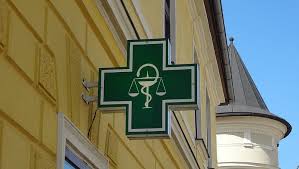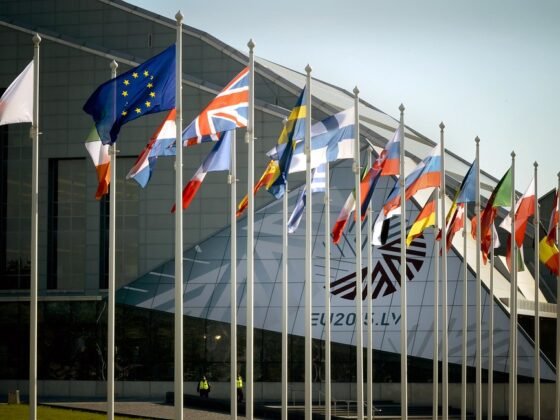(PONARS Eurasia Commentary) By Giorgi Beridze, University of Tartu/Tbilisi State University, Alla Leukavets, University of Tartu/Belarusian State University, and Andrey Makarychev, University of Tartu. This is the third installment in: “From a State of Exception to Policy Legitimation: The Politics of COVID-19 in Russia, Belarus, and Georgia.”
One of the questions the current COVID-19 debate left understudied is how different governments publicly legitimize their crisis management policies. Among post-Soviet countries, this issue is of particular importance for political regimes that are preparing for elections (Belarus and Georgia) or a constitutional referendum (“people’s vote” in Russia) either during the pandemic or immediately after it. In this short policy series, we look at how political elites in these three countries transform and normalize their policies from “states of exception” (a situation of emergency) to public mobilization for supporting and legitimizing their anti-pandemic strategies.
We build our analysis upon two concepts—sovereignty and governance—that are key for understanding political dynamics on the national level. Our general assumption is that in most post-Soviet countries, there is a profound gap between the two in the sense that sovereignty is overwhelmingly understood as an issue of possessing the power to rule. At the same time, governance is reduced to the technical administration of the everyday routine. This gap, by and large, corresponds to the well-articulated conceptual distinction between political and managerial dimensions of power, and keeping the two as far from each other as possible appears to be one of the strategies used by different regimes, mostly by illiberal ones. The idea behind this separation is to fend off the bearers of sovereignty from the responsibility for possible managerial risks and failures, and thus to create a politically sterile space of utmost convenience and safety for sovereignty holders.
However, the COVID-19 crisis has undermined this comfort zone and reconnected sovereignty with governance, since in the context of the post-emergency developments, each instance of public legitimation of political authorities (through elections or plebiscite) inevitably becomes a form of a “people’s vote” on the effectiveness of crisis management. This is because the pandemic threat, perhaps temporarily, devalues the importance of ideological or institutional arguments and puts in the center of (bio)political agendas issues of health, care, and protection of human lives and bodies.
Part 3 of 3: Georgia
A Success Story in Fighting Coronavirus?
Despite being ineffective in governing the country, Georgian Dream, the current ruling party, has so far managed to win every major election against the opposition.
Georgian Dream came to power in 2012 following years of protests against the former government of Mikhail Saakashvili and his party United National Movement (UNM). Saakashvili’s party was criticized for its crackdowns on social movements, mismanagement of the prison system, and widespread elite corruption. Acting in response to this, the new government led by the Georgian Dream coalition and billionaire Bidzina Ivanishvili took on reforms such as the liberalization of the prison system. Still, it did not manage to tackle economic problems such as enormous inflation and external debt, both of which have substantially increased over time.
During the recent 2018 presidential election, however, various social protests against the ruling party escalated. Although Georgian Dream narrowly escaped the defeat beating the opposition candidate Grogol Vashadze, its control was substantially weakened, and, since 2018, the government has struggled to maintain its hold on power.
In particular, summer 2019 featured an increased amount of social protests. One of them concerned a demonstration in the Pankisi Gorge in the north-east of Georgia, and another one took place on Tbilisi’s central Rustaveli Avenue. The latter event was a protest against the visit of Sergey Gavrilov, a member of the Russian Duma, to the Georgian parliament. To appease the protesters, Georgian Dream proposed electoral reform, i.e., changing parliamentary elections to fully proportional, which, ultimately, was not realized due to insufficient support from the members of the parliament.
This reform was partly implemented by the end of 2019 as a result of further social protests and involvement from the West. According to the proposed changes, the upcoming 2020 parliamentary elections in Georgia are going to be held based on a mixed system. Most of the seats will be distributed through a proportional voting system, whereas 30 seats will be distributed based on the majoritarian system, which was in force before the reform.
Popular support of opposition parties in Georgia is still not very high. According to recent opinion polls (NDI):
-
37% of respondents do not support any political party; -
21% support the ruling party; -
15% are in favor of the main opposition party, United National Movement; -
4% support European Georgia; -
3% support The Alliance of Patriots; -
8% support other smaller parties; -
6% refuse to answer; and -
6% remain undecided.
The coronavirus pandemic can pose both challenges and opportunities for the ruling party. The government is aware of many existing risks, including the medical infrastructure problems, and, therefore, opted for harsh restrictive measures from the very beginning of the pandemic.
Since the first case of coronavirus infection in Georgia, the government announced special measures, shutting down borders with neighbors and controlling all the Georgian citizens returning from abroad. It also introduced various additional restrictions, including the prohibition of leaving houses after 9 pm. Prime Minister Giorgi Gakharia created a crisis group, which includes several officials from the medical sphere, and he established a daily communication line with the population. He also refused to attend Easter services and, in spite of the criticism from the church, called on worshipers to stay at home.
As a result of these crisis management strategies, the death toll in Georgia remained low, and the country became a success story in fighting the coronavirus. Apparently, Georgia has the best “result” in Europe with, at time of writing, 12 people dying, 783 cases confirmed, and 605 recovered.
These numbers can contribute to increasing the popularity of the ruling party in advance of elections. However, the economic consequences of the crisis, including among other things its effect on the tourism industry that is vital for the economic performance of the country and the general income of the population, can still hurt the ruling party’s chances of staying in power.
To mitigate the economic consequences of the crisis and win the popular vote, the government applied several strategies. First, it offered financial assistance to those who have lost their jobs. Second, it negotiated agreements with the banks to postpone loan dues, targeting, in particular, the unemployed segment of the population. Finally, the leader of the ruling party Ivanishvili donated 100 Million Georgian Lari ($30 Million) to the coronavirus anti-crisis foundation, which managed to collect 124 million Georgian Lari in total to deal with the consequences of the pandemic.
As a result of these crisis management strategies, the popularity of the ruling party has increased, and, at the moment, it has the highest chances to win in the upcoming parliamentary elections. However, the economic consequences of the pandemic introduce a certain degree of uncertainty for the success of Georgian Dream. This weakness can be exploited by the opposition parties which might ally to strengthen their chances to oppose the ruling party in the upcoming parliamentary elections.
Conclusion
Undoubtedly, COVID-19 poses a particularly strong challenge to regimes heavily investing in the symbolic and performative dimensions of national sovereignty, and keeping the issues of governance at some distance from the supreme leader. Both Vladimir Putin and Aliaksandr Lukashenka personify this model that became particularly vulnerable in times of pandemic. The two regimes, in Russia and Belarus, are symbolically competing with each other in the realm of memory politics, which partly explains Putin’s decision to hold a military parade on June 24 after Lukashenka hosted a Victory Day ceremony on May 9. This was done in spite of the growing numbers of infected persons across the country, lucidly illustrating the gap between the imageries of power and sovereignty, on the one hand, and the practicalities of governance, on the other.
Against this backdrop, Georgia looks less concerned about sacralizing its national identity and more about investing in properly managing the state of emergency and opening the country as soon as possible for international tourism. It remains to be seen how these distinctions between the three countries will impact public voting.
Part 1 of 3: Russia | The domination of the pandemic creates a risky environment for the July plebiscite.
Part 2 of 3: Belarus | COVID-19 as a trigger of democratization?
Part 3 of 3: Georgia | A success story in fighting Coronavirus?











